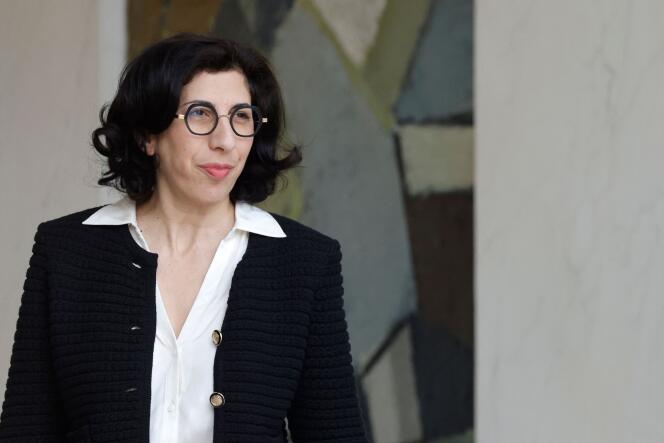


On the occasion of the 2023 Paris Photo fair, French Culture Minister Rima Abdul Malak took stock of new donations by photographers to public institutions. She discussed the concerns raised by artificial intelligence and announced a new public commission for the 200th anniversary of the invention of photography.
In 2022-2023, the French state received unprecedented donations, notably to the Bibliothèque Nationale de France [French National Library, BNF] and the Médiathèque du Patrimoine et de la Photographic [Heritage and Photography Media Library, which alone received 21 photographers' collections], including archives, prints and negatives. They received donations from photojournalists Christine Spengler and Gilles Caron; Magnum agency photographers Jean Gaumy and Patrick Zachmann; and artists such as Dolorès Marat, Denis Brihat, John and Claude Batho. Press photo collections have also been donated to the National Archives, such as the collection from [the newspaper] Libération, with 500,000 prints.
France is the country that saw the birth of photography, and we maintain a strong attachment to this medium, which is the "mirror of our memory," as Henri Cartier-Bresson once said. First and foremost, it's a relationship of trust with institutions that know how to both preserve and enhance their collections. I don't know any photographers who donate their work to keep it in storage! These donations are also a sign of Paris' dynamic position in the world of photography, with more open collaboration between public and private institutions.
In 2018, 20% of the work exhibited was by women. Today, we're at 36%, but that's still not enough. There has been a general awakening. Still, we had to force the change a little – without "ghettoizing" women in a special section. By being presented throughout the fair, they are visible to private and public institutions, collectors and all visitors. But I am spreading this message everywhere. Les Rencontres d'Arles [an annual photography festival in southern France] has also given more space to women. I also wanted to develop residencies for women photographers, with a new program at the Cité Internationale des Arts.
France's strength has always been in welcoming artists from all over the world. But when you're a public institution, you also have a role to play in promoting the French scene – in other words, the artists who live and work here. Yet the French scene is underrepresented in major institutions and festivals. We have insisted on this in our agreements with the entities we support. Intermediary venues, in particular those in the Diagonal network, play a major role. Their programming is 68% French people. We also want to double the number of residencies rooted in local areas by doubling the budget of the Capsule program to €320,000 and extending it to 28 venues.
You have 40% of this article left to read. The rest is for subscribers only.
